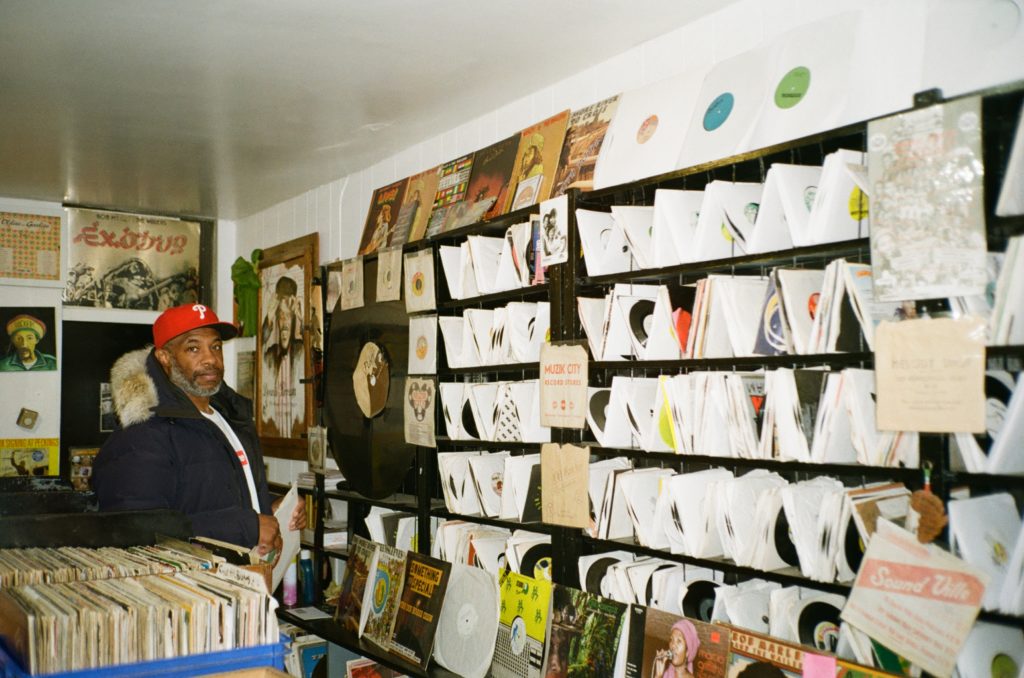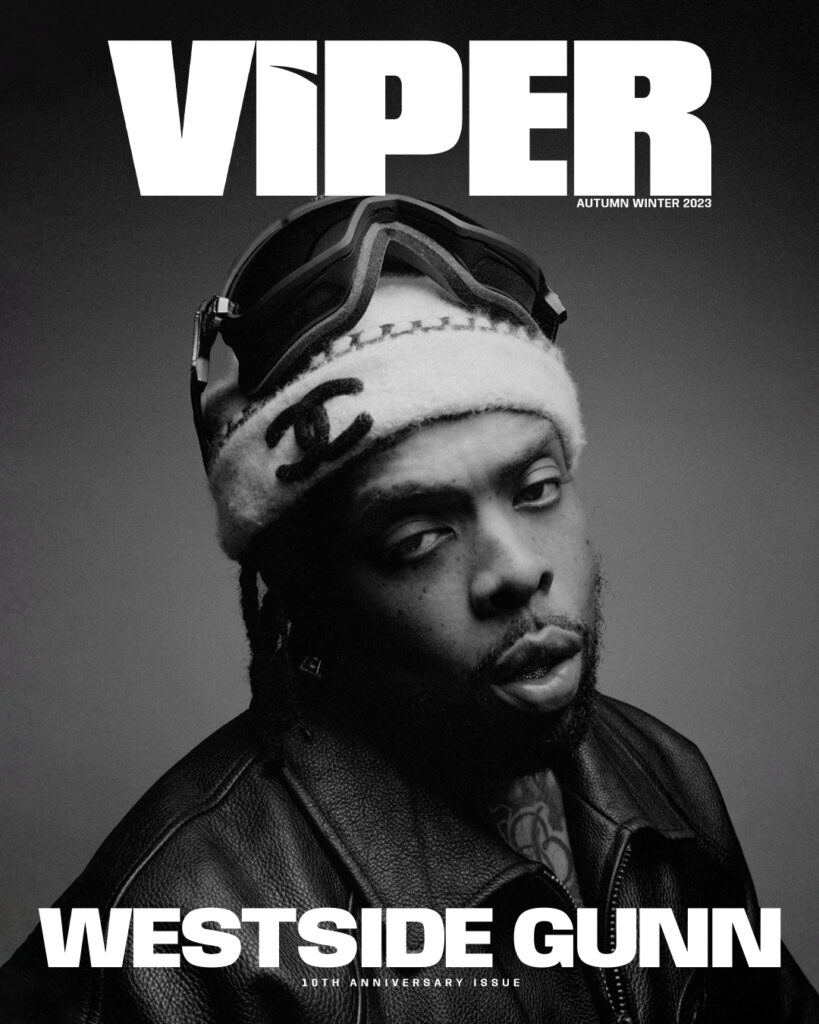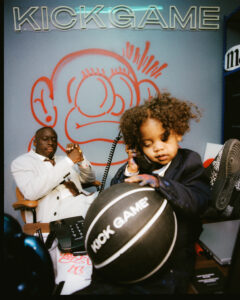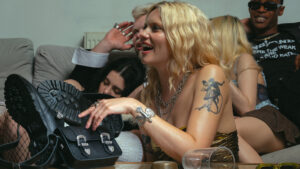Viper Magazine explores one of the London music scene’s best-kept secrets, Chris Peckings Price (@peckings). Our fashion writer & creative consultant James Loach joins cultural figure and model TJ Sawyerr in discovering a rooted history in reggae culture through notable West London OG, Chris Price. A.k.a ‘Peckings’.
Posted in West London’s Askew Rd, moments down the road from Notting Hill’s echoing carnival strip is ‘Peckings’ record store, is London’s oldest reggae store, holding onto 48 years of history and hard-to-find classic dubplates from the ’60s through to the present day.
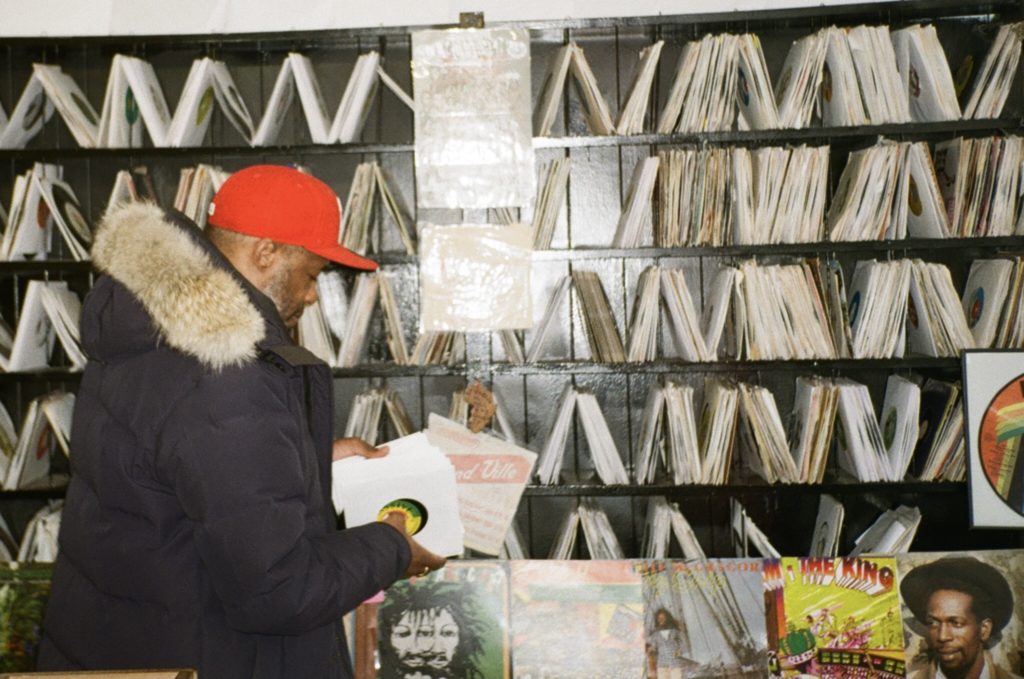
Peckings plays as a never-ending pacemaker for London’s Reggae scene, started by George price, the first person to sell and import records from Jamaica, who is lauded as the first to bring Jamaican music to Europe and the U.S. The history still lives and its legacy is carried by the son’s of George Price, Chris & Duke, who are now running Peckings Records shop in Shepherd’s Bush. Together, they’re keeping the cultural torch alight.
The lack of coverage on the Peckings reggae dynasty is of choice, as Chris has been reluctant to speak on his story publicly until now. Exclusively for VIPER, TJ Sawyerr meets with Peckings Record Store owner Chris Price to unveil the history and cultural significance of Peckings Record Store situated in West London’s Shepards Bush.
Chris Price is naturally a true OG of the London reggae scene, from carrying on the Peckings legacy with his brother Duke, as well as working closely with the likes of Lee ‘Scratch’ Perry, Duke Reid and Bitty McLean on production projects over the years. As the son of one of the greats of reggae history George ‘Peckings’ Price, Chris received the crown for ‘best label’ and ‘best producer’ at the British Reggae Industry Awards, which holds major respect as a pioneer of the game from all those who know their reggae and dancehall.
“Price is one of the most interesting and impressive people that I know, he has some incredible stories about his elaborate career and unique experiences” – TJ Sawyerr.
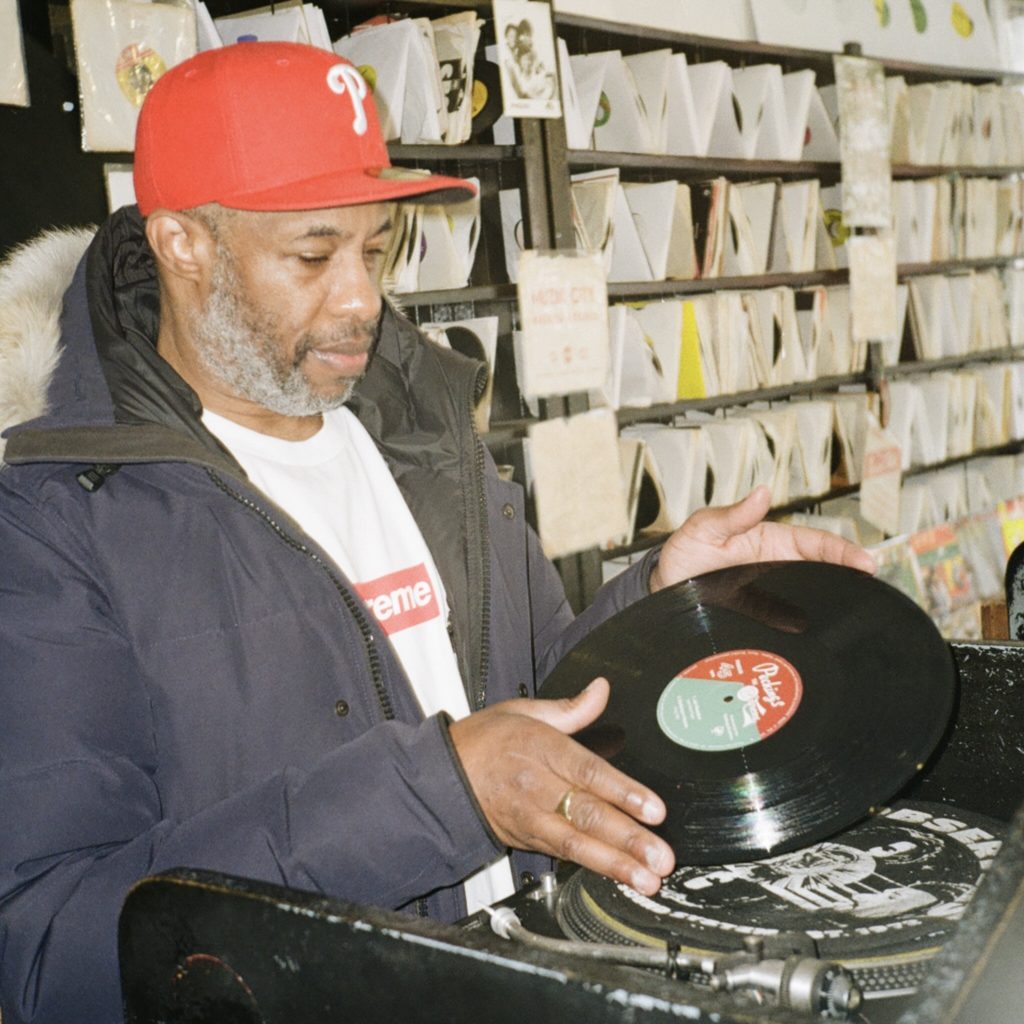
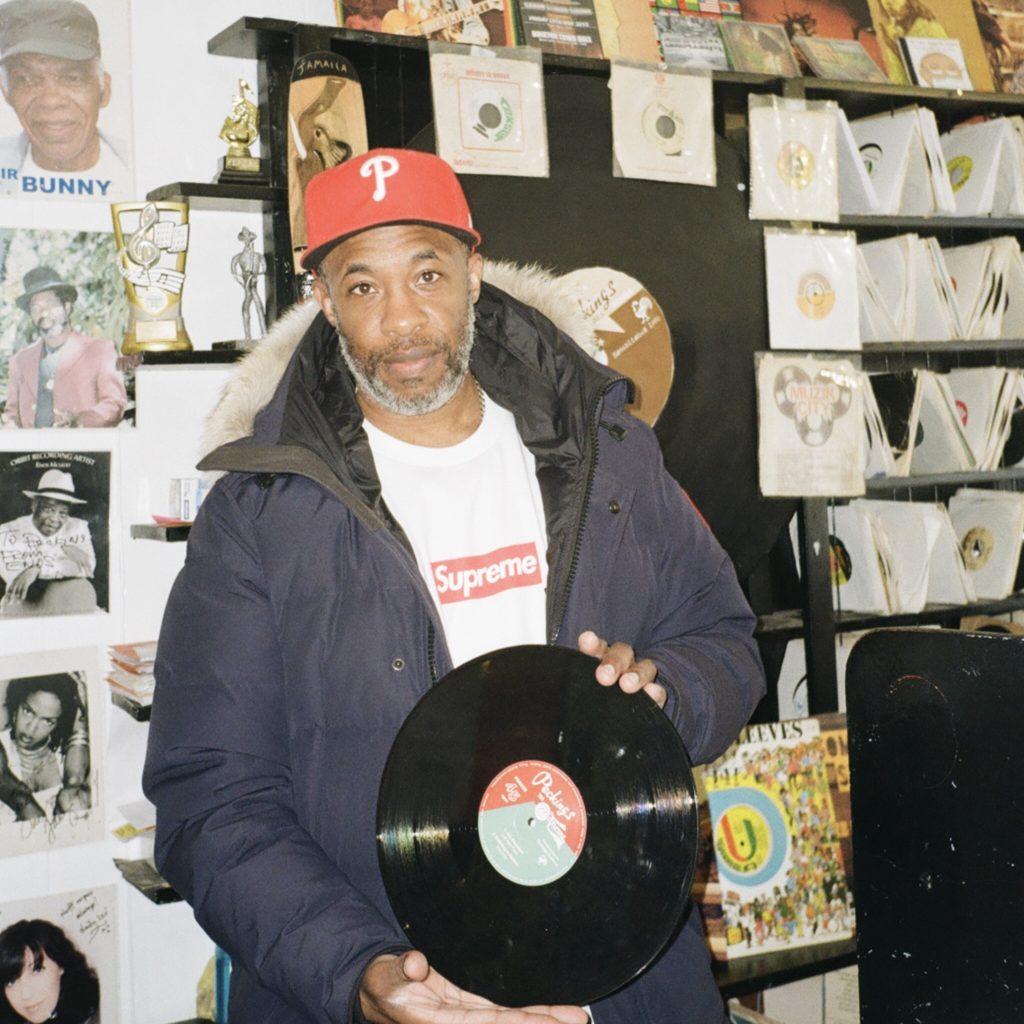
In an open-ended Q&A, live from Peckings Record Store, Chris gets himself comfortable with TJ as he prepares to unleash the tales from the notorious record store, surrounded by hundreds of reggae vinyls.
Centred around his work in the music scene, reggae culture today, and his father’s influence, TJ Sawyerr unveils the mind and soul behind London’s oldest Reggae Record Store.
On Family Legacy & Ties to Reggae.
My dad’s real name was George Price, he came to England in 1960 but before that in Jamaica, he was part of a sound system that was like the Mo-Town of Jamaican music, Studio 1. He was best friends with Coxsone Dodd, who was one of the premier pioneer producers for people like Bob Marley, Dennis Brown, Sugar Minott, Slim Smith, you name it. I think 90% of the greats of that era came through Studio 1, it was like a reggae academy. The sound system was filled with famous people like Lee ‘Scratch’ Perry, Prince Buster, Lord Comic, all the top guys. Those days they played more American music, rhythm and blues from New Orleans, so when my dad came here in ’60, production of Jamaican music had just started and he was the main point of contact in the U.K. for big industry figures back home, obviously through friendship, so they would always give him all their music first. He was the first real distributor of Jamaican music in the U.K.
On His Early Years –
Because I’m the youngest of 4, all my older brothers were in different stages in the business when I was a kid, so my eldest one Tony, when he was growing up in Jamaica, was the same age as people like Alton Ellis, Ken Boothe, so they were all friends. Then there was Trevor, who was the first of us to work in the shop, before Duke, who’s in the shop with me now, who used to cut dubplates for sounds like Shakka, so we’ve always been deeply involved in reggae.
Growing up and meeting all these artists and producers it was like normal, I didn’t even really realise how great they were, I just came up knowing them as my dad’s or my brothers’ friends. Despite that, being surrounded by such greatness really inspired me, because originally at school, when I was younger, I wasn’t listening to music from the generation before me, I was listening to soul and the early DJs like Lone Ranger and Clint Eastwood, that kind of thing. That’s totally different to what my dad used to listen to. One day, when I got to a certain age, the penny dropped and I realised that all the music that I was hearing was made up of sounds from the 60s and it’s just been modified and repackaged. That was the realisation that really got me into music, delving into the past and recreating it today.
I’ve seen people who my dad has inspired, go on to be very prolific and successful in the music business. Whether it be artists, labels, producers or store owners, I’ve seen it all, I grew up around it. I got a real drive from it because I’ve done the 9-5, working in the city in IT, but my passion, as a young man, rested elsewhere, in music, so that’s what I had to do.
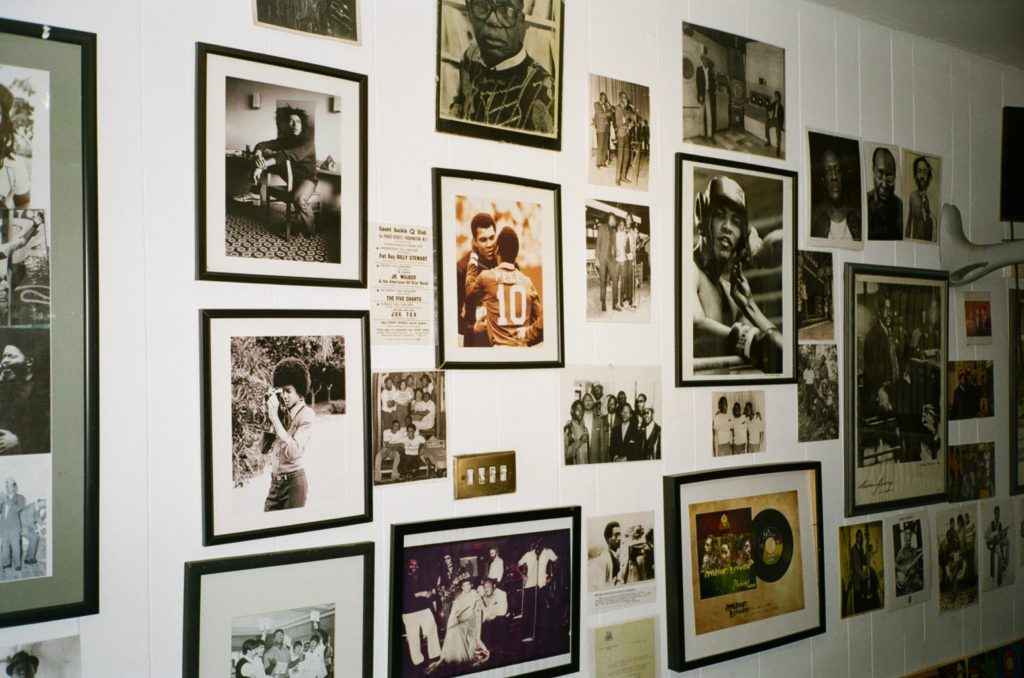
On Reggae Sound & The Music
Especially for my generation, born in the mid-60s, we’re the second generation post-Windrush era, which was the early 50s, so for us, at school, we learnt the same crap non-Caribbean, non-African history. It was only through the music of people like Marley, Burning Spear and Bunny Wailer, the gladiators of the culture, that we were able to learn about our own culture and history, learning about the likes of Marcus Garvey and Malcolm X. We weren’t being taught this stuff in schools, so that’s how we got to learn, through the musical teachings of that generation. Music was an essential part of our education.
Everybody listens to music, it dictates your mood, it’s the soul to your heart, so, for me, doing all that other work, in IT, it was never really me, I was living a lie. It was the music. Especially with what my dad had built, I had a start in life that many people never get, so I had to take that chance.
On Reggae Culture Worldwide
I think there are elements of both appreciation and appropriation of Jamaican culture worldwide because I think each different generation that has come up since I started, has brought something new to the table and that’s what I like. From my generation growing up to now, we’ve had jungle, we had dubstep, we’ve got drill, we’ve got grime, you name it, so many different branches from original reggae music from the sound system days. A lot of the guys that started getting onto jungle were the same guys that used to spit on sound systems and that’s how it has all transpired from genre to genre. So I think it’s a good thing because it has brought through other generations of consumers who are non-African and non-Caribbean, into the arena. After all, while I was growing up, reggae was only really listened to by us, by black people. Now, music’s big everywhere. Today, reggae’s big in Germany, got big German artists like Gentleman, big Italian artists like Alborosi, a lot going on in Switzerland and France, so I think it’s exciting. The only thing I would say is that, at times, we’re not the ones to eat the biggest slice of the cake from what we created, and I think we have to try and address that somehow, probably not in my generation, but in the younger generation
On The Oldest Record In-Store
It would be a Rhythm and Blues tune because that’s what my dad started selling from the off. Sadly most of that generation that bought that stuff doesn’t really come through here anymore, because they’d be in their 80s now, but I still have those tunes because you do get the odd person coming in and asking after a Rhythm and Blues riddim. We’re talking about tracks from the mid-50s like ’56.
On His Favourite Record
I would say Sugar Minnot album ‘Live Lovin’’. That’s a particular record that means a lot because it was the first album that my Dad released in 1974. Sugar was also a very close friend of the family.
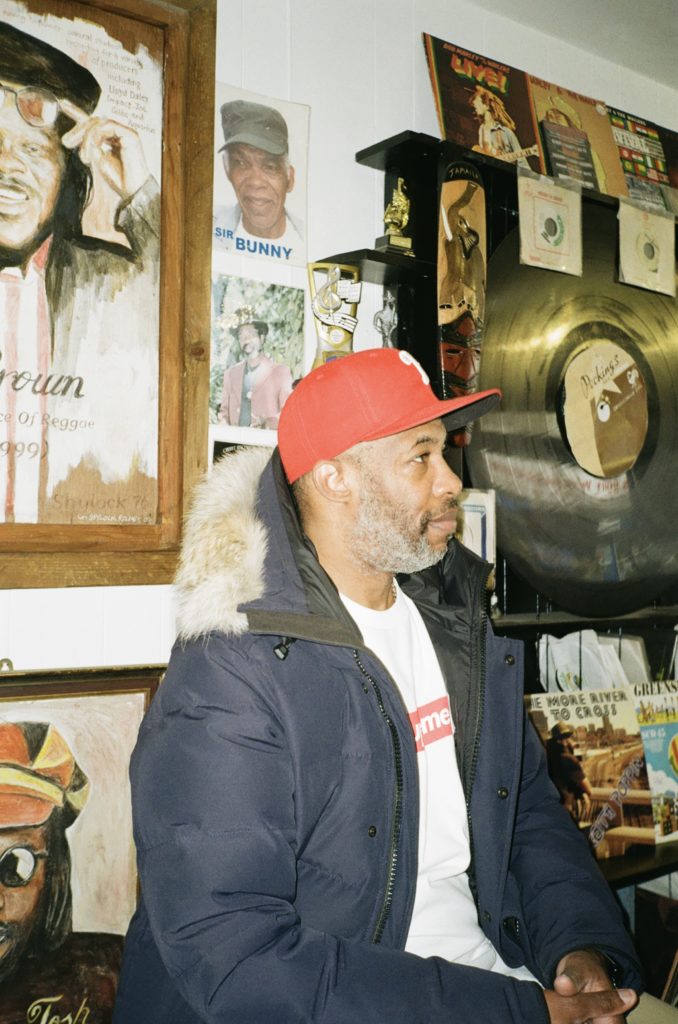
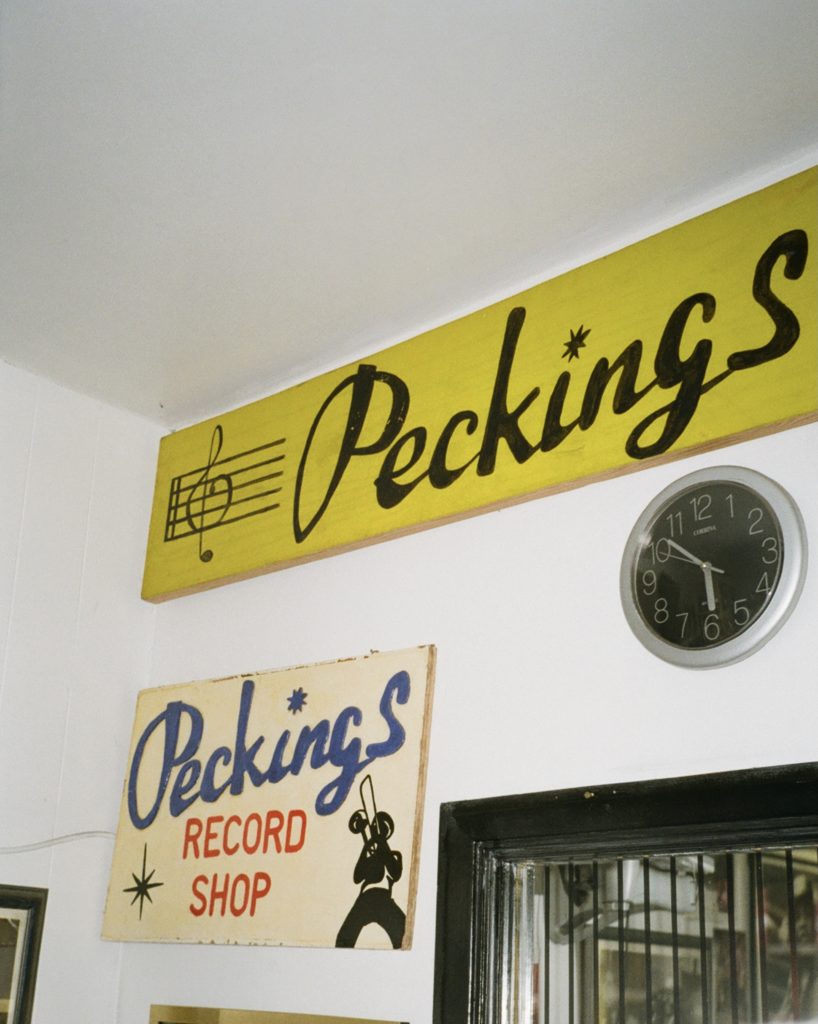
On That Memorable Experience & During His Career
One time I was in New York, and I used to stay over there with Coxsone Dodd, the owner of Studio One, who has known me since I was like 11, and we were in the studio cooking when Alton Ellis came through. We sat there chatting all night, and he was running loads of unreleased stuff, Bob Marley stuff, Delroy Wilson, and I was like ‘wow’. At the time I was about 26, and for them, it was nothing, just a normal but for me it was special. There are loads of times where you meet big superstar artists, like (Bob) Marley and Dennis (Brown), who I’ve encountered in my time, but it’s often just in passing, rather than sitting down and getting into it. That night, I was in the presence of two greats, the man who started it all (Dodd) and one of the superstars of that era of music (Ellis).
I’d say the Gappy Ranks album ‘Put the Stereo On’, because he was a dancehall kid from Harlesden, and we got him to make an album that was loved by his generation and the OGs as well. The album that opened things up for me the most however was the Bitty McLean ‘On Bond Street’ LP that me and Duke did, that really set the foundation for the label.
On Our Next Generation, The Gatekeepers Of Our Future.
I hope that the generation now continues along that way that we have paved. I think the creative industry and wider world is in good hands, especially with how, culturally, young black men are influencing others and continuing to do great things. I think the youth gets a lot of bad press, which is unfair, but I understand it because we got all the same bad press. That’s what it is to be a minority, you’re under scrutiny, but I rest assured knowing that there are so many young bucks doing wonderful, important things.
On The Effects of the Pandemic
We carry on man. I think what we have done during this period is focus a lot more on recordings. We’re working on a licensing deal with some of the older producers to try and start another subsidiary part of Peckings, where we have a Gold Collection within the store, reissuing many collectable records and historic albums. My son Jerrell has his thing going, and that will hopefully allow us to start something for the younger generation of music and culture enthusiasts because we’re not here forever, so it’s good that another generation can carry on the work and the progress.
I think it’s like the Earth’s been reset, and I think that, out of this, there’s been a lot of creativity as a result. In a lot of ways it’s good because it allows for independent young people to prosper. I reckon you’ll see a lot of millionaires coming out of this pandemic period, young ones, whether it’s through fashion, music or acting, whatever it is.
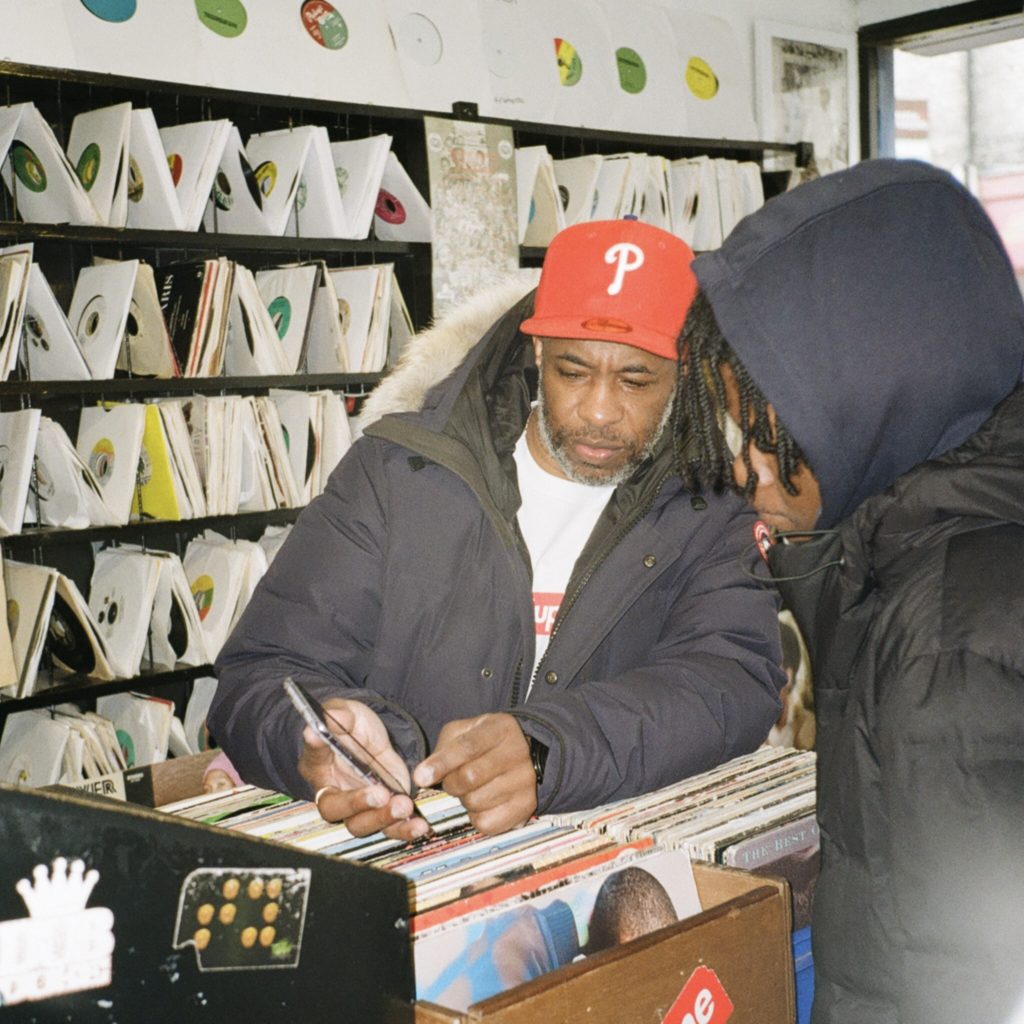
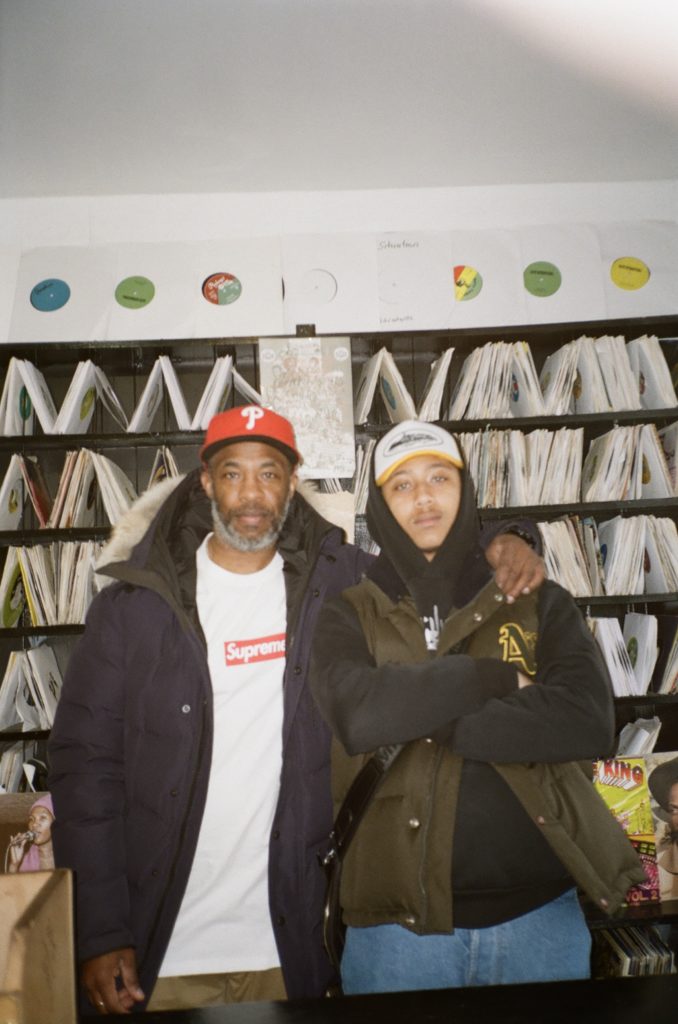
On Up and Coming Artists to Watch
Of course, there are the obvious ones like Chronixx and Protoje, other people are coming up like Randy Valentine who’s really good, Ras Demo, formerly known as Demolition Man in the jungle scene, and then a couple of young girls Aleighcia Scott and Lila Iké who are doing great things.
Get acquainted in person, make a visit to Peckings Studio, Askew Road W12, London to explore West London’s best-kept secret.
Photography by TJ Sawyerr
Words by James Loach
